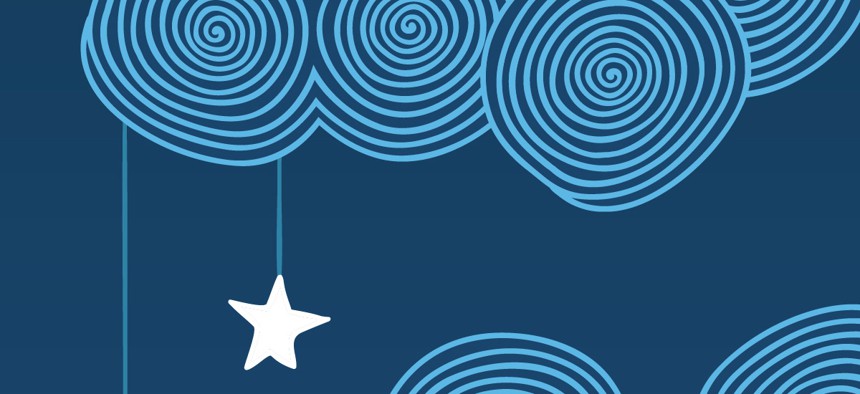
Magnia/Shutterstock.com
Exactly How Much Sleep Is 'Enough'?
New recommendations from the National Sleep Foundation
Today the National Sleep Foundation released new guidelines, serving to clarify the meaning of "enough" in the tedious rejoinder, "Most people don't get enough sleep." The sleep-advocacy foundation convened a panel of experts, led by Harvard professor Charles Czeisler, to review hundreds of studies, reminding us that too little sleep can lead to weight gain, depression, and relative deficits of attention—and that too much sleep is, likewise, inadvisable. The recommended sleep allotments are:
- Newborns (0-3 months): 14-17 hours (previously 12-18)
- Infants (4-11 months): 12-15 hours (previously 14-15)
- Toddlers (1-2 years): 11-14 hours (previously 12-14)
- Preschoolers (3-5): 10-13 hours (previously 11-13)
- School-age children (6-13): 9-11 hours (previously 10-11)
- Teenagers (14-17): 8-10 hours (previously 8.5-9.5)
- Younger adults (18-25): 7-9 hours (new age category)
- Adults (26-64): 7-9 hours (previously the same)
- Older adults (65 and older): 7-8 hours (new age category)
These new recommendations do little in the way of upsetting the old, with minor variations and clarifications for older adults and young children. And the numbers may vary among people with medical conditions, and among the few outliers who still function optimally outside of these ranges. But these are the amounts that the panel wants people to consider "rules of thumb." The issuance of new guidelines, however familiar they are, serves at least in an effort toward awareness amid an ongoing public-health effort to rebrand sleep deprivation as less of a testament to mettle and more of a serious medical hazard.
The evidence against too much sleep is not as strong as the evidence against too little, though getting too much sleep has been linked with increased risk of near-term mortality. Still some experts argue that it's unclear if sleeping beyond nine hours is inherently dangerous to adults. In relation to poor health and failure to thrive, deviating from these sleep ranges can either be a cause or an effect.
In practical terms, the panel also reminds people, familiarly, of the benefits of avoiding caffeine and alcohol in the hours before bed, exercising as a means tobetter sleep, and the reprehensibility of bringing a phone into bed. Because ultimately, the National Sleep Foundation implores us today, evoking the scythe: "Humans, like all animals, need sleep, along with food, water, and oxygen, to survive."
(Image via Magnia/Shutterstock.com)






